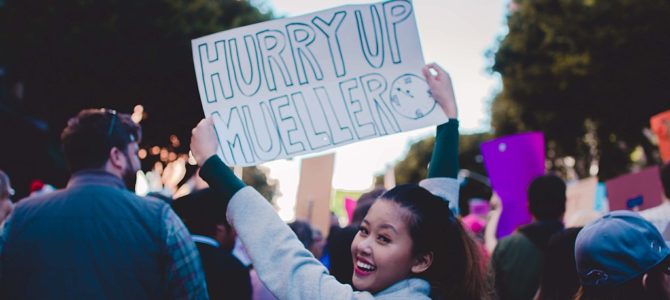
On Tuesday The Guardian ran an exclusive claiming that “Donald Trump’s former campaign manager Paul Manafort held secret talks with Julian Assange inside the Ecuadorian embassy in London, and visited around the time he joined Trump’s campaign.” According to The Guardian, Manafort met with the WikiLeaks’ founder at the embassy three times—in 2013, 2015, and in spring 2016.
While acknowledging that the purpose of the claimed meeting is unknown, The Guardian implies Manafort’s supposed March 2016 secret rendezvous concerned WikiLeaks’ role in releasing the hacked Democratic National Committee emails. “The revelation could shed new light on the sequence of events in the run-up to summer 2016, when WikiLeaks published tens of thousands of emails hacked by the GRU, Russia’s military intelligence agency,” The Guardian wrote.
The Guardian story pointed to the discredited dossier crafted by Christopher Steele, quoting the former British spy’s claims that Manafort served as the linchpin of a “well-developed conspiracy of cooperation” between the Trump campaign and Russia, and that “the (hacking) operation had been conducted with the full knowledge and support of Trump and senior members of his campaign team.”
The Guardian also relied on two unnamed sources and an internal document purportedly written by Ecuador’s intelligence agency. But, as the article acknowledged, embassy security guards did not record Manafort’s supposed visit, as is the practice for all guests entering the embassy.
WikiLeaks responded immediately tweeting, “Remember this day when The Guardian permitted a serial fabricator to totally destroy the paper’s reputation,” adding that it was “willing to bet The Guardian a million dollars and its editor’s head that Manafort never met Assange.”
A little later, WikiLeaks launched a GoFundMe account “to sue The Guardian for publishing entirely fabricated story ‘Manafort held secret talks with Assange in Ecuadorian embassy’—which spread all over the world today.” According to The Hill, “Manafort vigorously denied the report, accusing The Guardian of libel.”

Whether Manafort or WikiLeaks have a viable legal claim is unclear. But what is clear is that The Guardian’s story was read round the world. Major media outlets quickly regurgitated the tale that “Manafort held secret talks with WikiLeaks founder Julian Assange around the time he joined Trump’s campaign.”

The timing of Tuesday’s story suggests a concerted effort to craft a new Trump collusion narrative. Just the day before, in a court filing, Special Counsel Robert Mueller’s team claimed Manafort violated his plea agreement by lying to federal agents “on a variety of subject matters” that would be detailed later in a sentencing submission.
Manafort, who pleaded guilty earlier this year in a Washington D.C. federal court to two criminal counts related to foreign lobbying, denies lying to the FBI or the special counsel’s office, but The Guardian’s story now gives the public cause to imagine that Manafort’s purported prevarication concerned his supposed meeting with Assange in March 2016.
Tuesday also saw CNN contributor Carl Bernstein furthering the narrative that Manafort served as the Russia connection. According to the former Watergate reporter, Mueller’s team is investigating a 2017 meeting between Manafort and the Ecuadorian President Lenin Moreno. Bernstein reported that “according to a source with personal knowledge of the matter,” the special counsel is inquiring whether Manafort discussed WikiLeaks or Assange when he met with Moreno.
While CNN acknowledged that Moreno had previously stated that his 2017 meeting with Manafort involved a group of Chinese investors hoping to privatize the country’s electrical services, the goal of Bernstein’s source seems clear: to connect Manafort to Assange. That goal coincides with the story pushed by The Guardian’s two unnamed sources.
Here, the public would be wise to remember that The Guardian’s story represents the third attempt to connect the Trump campaign to the Russian hacking of the DNC emails in an effort to convince the American public that the Republican presidential candidate colluded with Russia to influence the 2016 election.
The first theory ran that former Trump campaign advisor George Papadopoulos was the Russian connection because he had foreknowledge of the DNC hack. Strategic leaks to The New York Times helped craft that narrative. (And it isn’t hard to guess from whence those leaks came, since evidence now suggests that Papadopoulos was just the stooge the FBI needed as cover to launch its Crossfire Hurricane investigation into the Trump campaign.)
The Papadopoulos theory, though, has long since petered out. Papadopoulos never had inside information about the DNC hack, and after securing a two-week sentence against him for lying to the FBI, Mueller has moved on.
The second Russia collusion theory also hit a snag earlier this week when Jerome Corsa went public with a plea bargain Mueller’s team was pushing. Corsi told One America News Network that the special counsel wanted him to testify that he was “the conduit to WikiLeaks and Assange for Roger Stone, who in turn had a conduit to the campaign.” But “it just isn’t so,” Corsi told the conservative news network.
The special counsel’s office has focused on Stone—a longtime player in Republican politics—for some time, likely because of Stone’s close connections to Trump. But Mueller’s team needed to tie Stone to Assange before moving up the ladder to the Trump campaign, and the special counsel’s office was looking to Corsi to make that connection, according to the Daily Caller.
But Corsi is refusing to go along with Mueller’s power play. Instead of waiting for an indictment to drop, Corsi preemptively took to the press to publicly proclaim his innocence. “Assange didn’t give me anything,” he told Chuck Ross, adding that he had no contact with the WikiLeaks founder and instead surmised on his own that Assange would drop more DNC emails as an October surprise.
While we wait to see Mueller’s official response to Corsi’s rejection of the plea offer, the timed leaks pointing to Manafort as the new Russia connection make clear the collusion narrative will never die—it will just evolve.









